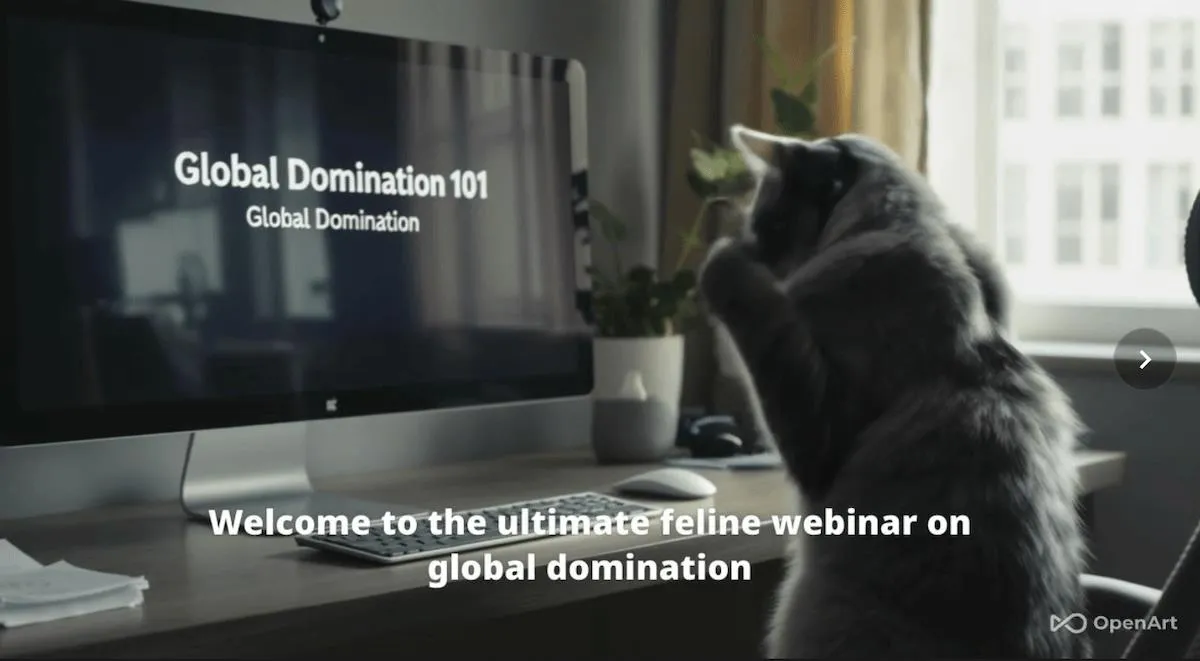
In recent months, AI-generated “brain rot” videos have become a viral sensation across various social media platforms, particularly among younger audiences. These quirky clips feature bizarre characters, such as a shark sporting sneakers and a ballerina with a cappuccino for a head, captivating viewers with their unique storytelling and visuals.
A key player in this emerging trend is OpenArt, a startup founded in 2022 by two former Google employees. With approximately 3 million monthly active users, OpenArt has quickly gained popularity in the world of AI content creation. The company recently introduced a groundbreaking feature dubbed “one-click story”, currently in open beta, which enables users to transform a single sentence, script, or even a song into a one-minute video complete with a narrative arc.
The One-Click Story feature is versatile, allowing for various types of content creation, from light-hearted stories ideal for TikTok to more serious explainer videos or even music videos tailored for YouTube. OpenArt has designed three templates for users to select from: Character Vlog, Music Video, and Explainer.
For the Character Vlog template, users can upload an image of their character and provide a prompt. If a song is included, the software intelligently interprets the lyrics and animates visuals that resonate with the song's themes—like depicting flowers blooming in a vibrant garden. Users also have the option to edit individual clips by accessing the editor’s storyboard mode, allowing for refinements and enhanced storytelling.
OpenArt incorporates over 50 AI models, giving users the freedom to choose their preferred tools for content creation, including well-known models like DALL-E 3, GPT, Imagen, Flux Kontext, and Stable Diffusion. This diverse array of tools aims to lower the barriers for aspiring AI creators, making it easier to produce unique content despite ongoing debates surrounding ethical implications.
While the potential for creating engaging content using AI tools is immense, several ethical issues must be considered. Concerns include the imitative nature of AI-generated content, potential intellectual property rights violations, and the risks of misinformation. During testing, it was noted that the Character Vlog option might unintentionally infringe upon legal boundaries due to characters reminiscent of popular franchises like Pikachu, SpongeBob, and Super Mario.
In June, Disney and Universal took legal action against AI firm Midjourney over similar concerns regarding AI-generated images. Users must be aware that if their videos infringe on someone else's copyright, they risk removal from social media platforms and potential legal repercussions.
“We try to be cautious around IP infringement,” stated Coco Mao, co-founder and CEO of OpenArt, in an interview with TechCrunch. Mao explained that when users upload images of IP characters, the underlying models automatically reject them to prevent infringement. However, she acknowledged that there can be occasional slip-ups in this process. OpenArt is also open to discussions with major IP holders to seek licensing agreements for characters.
One of OpenArt's distinguishing features is its commitment to maintaining character consistency throughout videos. Unlike conventional video models that often rely on disjointed clips, OpenArt strives to ensure that both the visuals and narrative remain cohesive. “A problem that a lot of AI couldn’t really handle well is to have the character consistent in the same video…If you don’t have the same character, then it’s hard to get immersed in the story,” Mao explained.
Looking ahead, OpenArt plans to enhance the one-click feature further by enabling users to create videos featuring dialogues between two different characters. Additionally, a mobile app is on the horizon, aiming to broaden accessibility and user engagement.
OpenArt operates on a credit-based system, offering four subscription plans. The most basic plan costs $14 per month, providing users with 4,000 credits, which includes up to four One-Click stories, 40 videos, 4,000 images, and four characters. The advanced plan is priced at $30 per month for 12,000 credits, while the Infinite plan costs $56 per month for 24,000 credits. A team plan is also available at $35 per month per member.
To date, OpenArt has successfully raised $5 million in funding from investors like Basis Set Ventures and DCM Ventures, and the company is currently reporting positive cash flow. Furthermore, OpenArt is on track to achieve an impressive annual revenue rate exceeding $20 million.